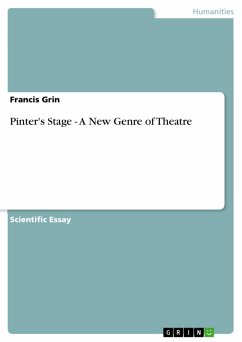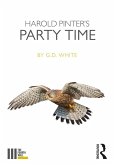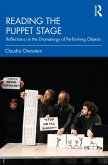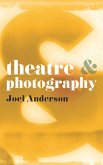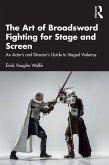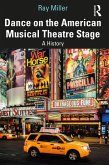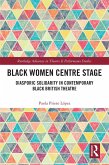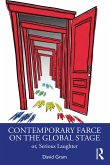Scientific Essay from the year 2008 in the subject Theater Studies, Dance, grade: H1, University of Melbourne, course: Modern Drama, language: English, abstract: When Harold Pinter's plays first hit the British stage, they didn't exactly receive a warm welcome. The 1958 Lyric Opera House premier of The Birthday Party was famously ripped to shreds, as the Daily Telegraph called it "one of those plays in which an author wallows in symbols and revels in obscurity." (Darlington 1958) Its seemingly incomprehensible dialogue and action simply baffled most audience members into boredom. Yet today, Pinter's plays are considered some of the most pivotal milestones in the movement of modern drama. Critics warmed up to Pinter as they stopped trying to read his plays through an already existent framework (realist, absurdist, etc.) and finally saw the texts for what they really were: revolutionary works of theatre. In a review regarding the 2005 Duchess Theatre production of The Birthday Party, Michael Billington states "one problem in the 50s was that critics assumed Pinter was writing in the absurdist vein of Ionesco and NF Simpson. Now it is much easier to see the play for what it is: a rep thriller invented by a man who's read Kaftka." (Billington 2005) The point being, the major plays of Harold Pinter can neither be pushed into the categories of realist or absurdist theatre, they belong in a league of their own and need to be looked at through an independent framework.
Dieser Download kann aus rechtlichen Gründen nur mit Rechnungsadresse in A, B, BG, CY, CZ, D, DK, EW, E, FIN, F, GR, HR, H, IRL, I, LT, L, LR, M, NL, PL, P, R, S, SLO, SK ausgeliefert werden.

